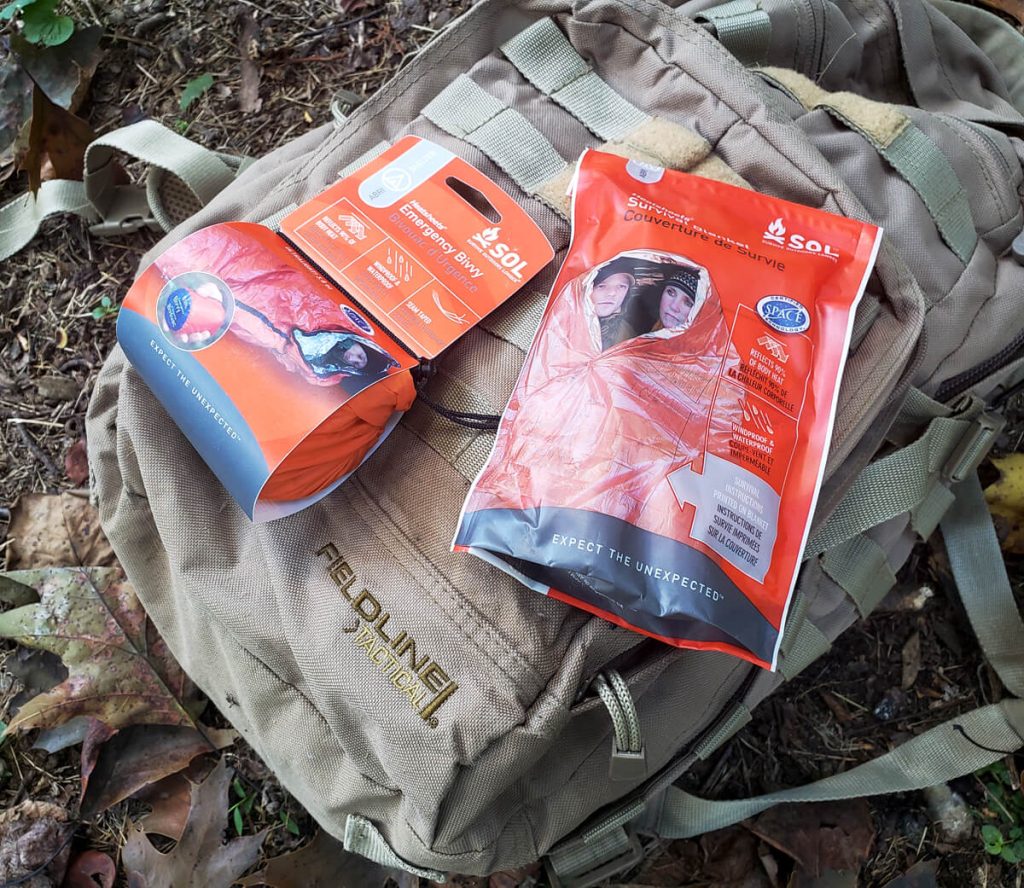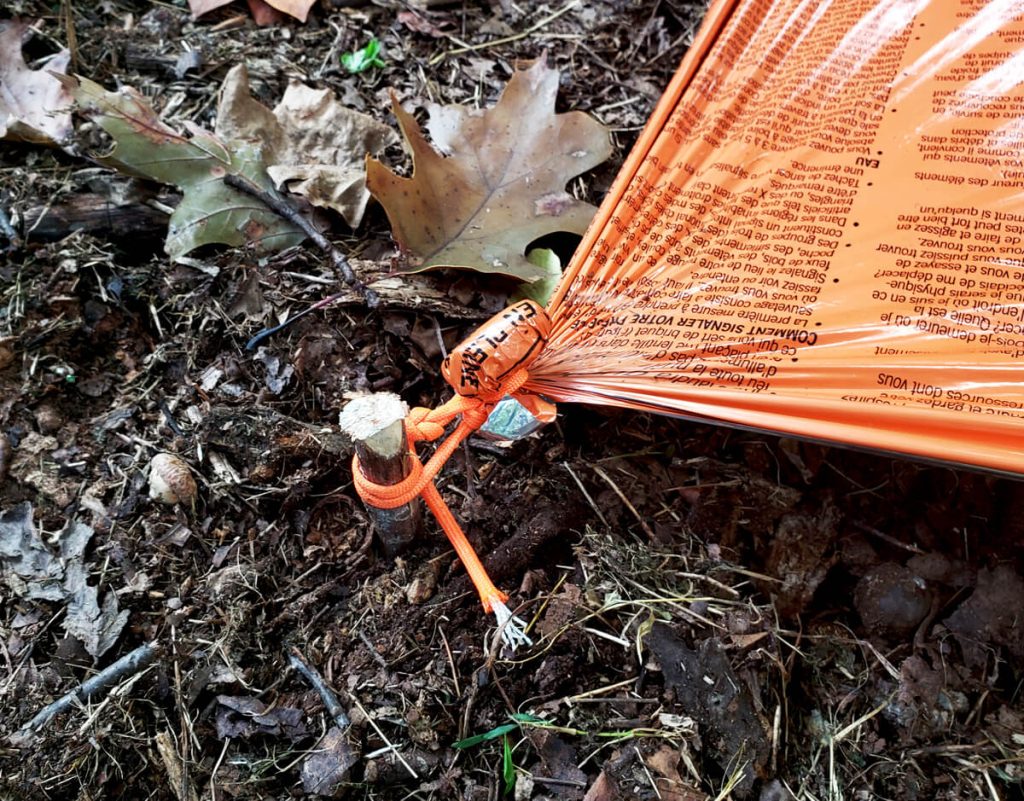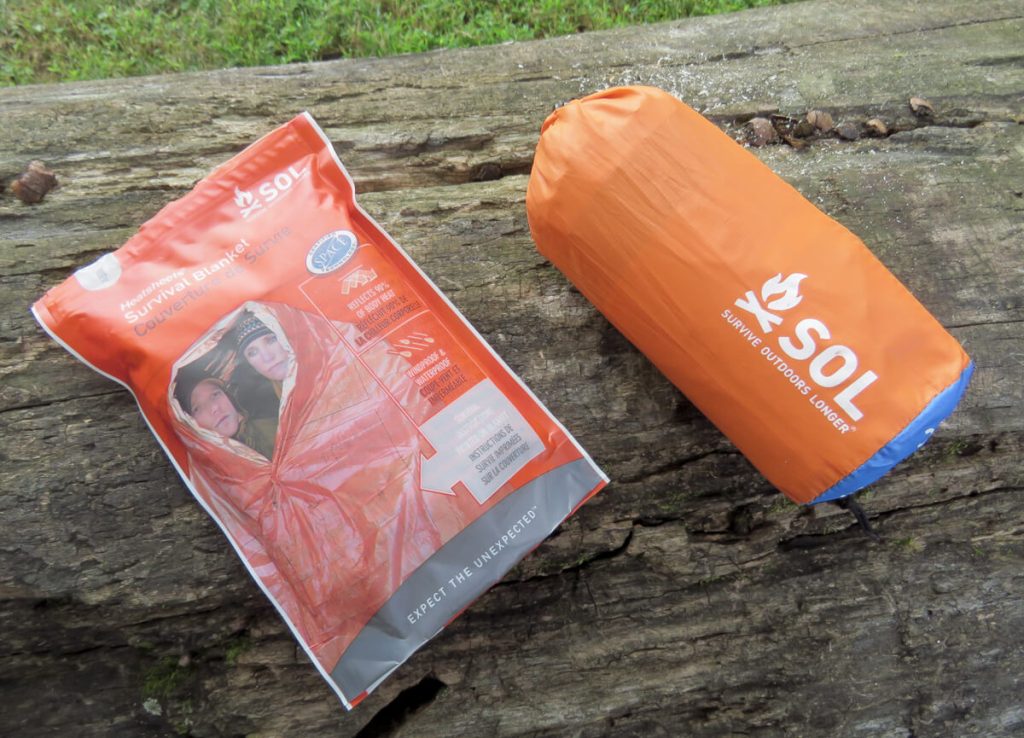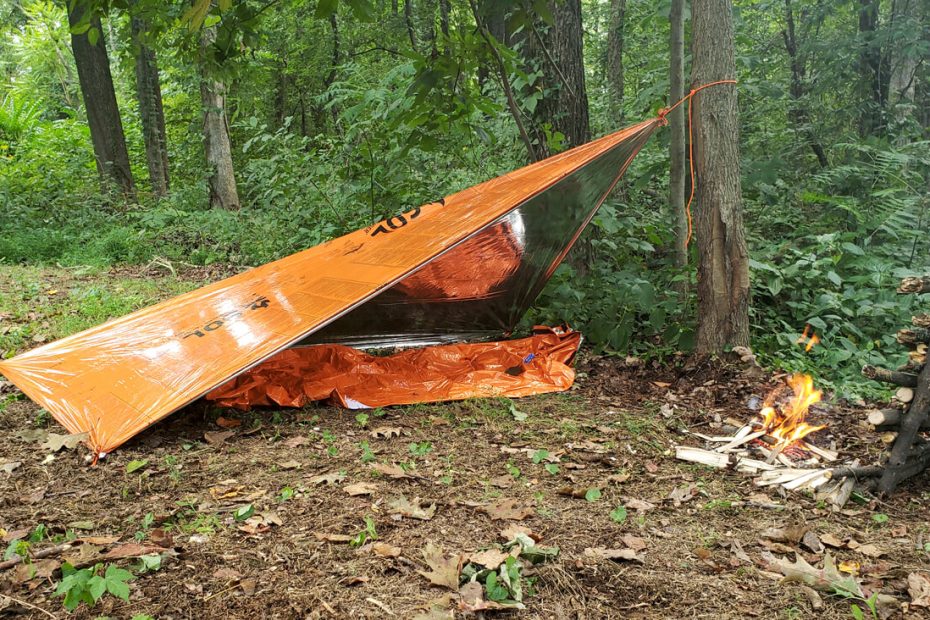As we head into a new Fall season, temperatures are starting to drop at the same time as people travel for holidays and continue to enjoy the great outdoors. Every year, hundreds of people unwittingly find themselves in situations where they have to spend an unexpected night away from the comforts of the home. Regardless of the situation that put them there, the potential risk of hypothermia increases as the temperatures fall and without the proper equipment and know-how, that could be deadly. The Heatsheets Blanket and Emergency Bivvy from Survive Outdoors Longer (SOL) are two products that are available to help prevent just such a tragedy from occurring.

Space Blankets vs. Survive Outdoors Longer
If you have ever used or handled the legacy space blankets found in many emergency kits then one of the first things that you noticed was how noisy the material was. It seemed like the slightest movement of the blanket unleashed the crinkling of 1,000 plastic bags. The metalized polyethylene material that the SOL products are made is up to 50% thicker than contemporary metalized polyester type emergency blankets. This thicker construction not only makes it quieter but much more durable as the material will stretch and give before it tears. Even if a hole forms, it won’t shred like traditional space blankets do and can be easily repaired with duct tape. Finally, the orange exterior not only makes you more visible to rescuers but it’s also there to remind you which side is reflective. Traditional space blankets that are all silver can be easily turned inside out in stressful situations, essentially making it useless.
Heatsheets Blanket
The SOL Heatsheets blanket that I bought is their larger 60” X 96” emergency blanket that is large enough for two people to wrap up in. The dimensions of the blanket also make it a multipurpose item, capable of being used as an emergency shelter if need be.

On the blaze orange side of the blanket, there are numerous instructions in multiple languages to cover survival topics such as first aid, water collection, and shelter building. The information was pretty basic but a good resource nonetheless. The blanket came packaged in a resealable pouch that’s expandable so you can repack the blanket later on.

Using the blanket as just a blanket was pretty straightforward and the generous size made it easy to completely wrap up in it. It also would’ve have been too hard to fashion it into a sleeping bag like I used to do with my poncho liner back in the day.

Of course, the blanket is windproof/waterproof so therefore not breathable and from time to time it was necessary to open up the front a little to ventilate. If I didn’t ventilate then condensation would have built up on the inside, potentially increasing my chances for hypothermia in an emergency.
SOL Emergency Bivvy
The SOL Emergency Bivvy was the smallest, most compact bivvy that I could find and is made from the same material as the Heatsheets blanket. The bivvy is essentially a 36” X 84” bag that comes neatly rolled in its own drawstring pouch. Unlike the blanket, the bivvy isn’t as multipurpose but it is windproof, waterproof, and large enough for a full-grown adult to wiggle into. In use, I found I was able to easily get in the bivvy wearing boots, jeans, and a long-sleeved shirt by rolling it down towards the bottom and stepping into it. It was a little restrictive width-wise for my 5’10” 225lb frame but nothing too severe, no worse than some mummy sleeping bags I’ve been in.

When I was in a seated position inside the bivvy, I was generally able to bring the bag up to the back of my head but not really completely over it. This may or may not be an issue for some people, I felt it was worth noting. Just like the blanket, the bivvy doesn’t breathe either so with only one way in and one way out, periodically venting the bag to mitigate condensation build-up is crucial.

Shelter
I used the Heatsheets blanket to set up a hasty emergency shelter, which wasn’t difficult using some 550 cord, stones, and field made tent stakes. I used the stones to help tie off the corners of the blanket to form a simple plow point shelter with the back facing into the wind.


My small camp was just temporary but it demonstrated to me the versatility and effectiveness of these two SOL products. If I had planned to spend the night out there I definitely would’ve needed a bed of dry grass or leaves about 8” thick to insulate myself from the ground. Without it, conduction would’ve robbed me of much of the warmth I was trying to retain using the bivvy. I started a fire using my Morakniv Companion Spark several feet away from the shelter so I didn’t risk burning the whole thing down.

I did make some mistakes though, one of which could’ve been pretty bad with an inferior blanket, I caught it with my boot getting into the shelter. Luckily, all it did was stretch the material some and for the most part, the shelter was big enough to move around without too much awkwardness.

The plow point shelter is easy to set up quickly but the blanket can be configured into variations of a lean-to or A-frame shelter without much effort. In hot climates, the silver side can even be turned out to reflect the Sun’s rays and provide a cool shady spot to rest. Further uses for the blanket include as a signaling device, water collector, and groundsheet to name a few.
Observations and Closing Thoughts
According to the product literature, both of these items are reusable and from what I’ve experienced that is certainly true. Both of these picked up some wear but they are still completely functional and serviceable if I need to use them down the road. In fact, I was able to fold up both and fit them back into their original packaging for storage, just try and do that with a traditional space blanket.

Before I wrap things up, I feel it’s important to touch on some emergency blanket best practices. Firstly, both of these products can only reflect heat back to you and have no insulating value in and of themselves. That means if you use one of these and just sit or lay on a bare surface, pretty soon conduction is going to suck the heat right out of you. Always insulate yourself from the surface you’re resting on to help make these two products more effective and keep you alive. Lastly, while you could make it through a night in reasonable conditions using either of these products on their own, I recommend using them with a fire whenever possible. Just don’t get either one too close to the flames, they will go up like a Roman candle.

Overall, I liked both products very much and highly recommend them for your pack, your home, and/or your vehicle’s emergency kit. Life is too unpredictable not to have something as lightweight and compact as these items, which could provide serious help in a life-threatening situation. The SOL Heatsheets 1-2 Person Blanket can be found for approximately $8.00 and the SOL Emergency Bivvy costs around $16.00, so they’re incredibly affordable for the peace of mind they can provide.
